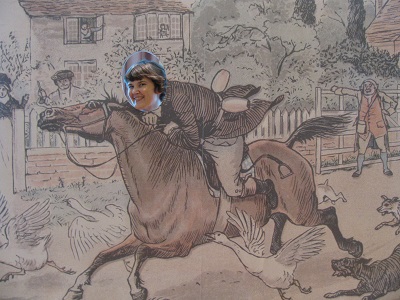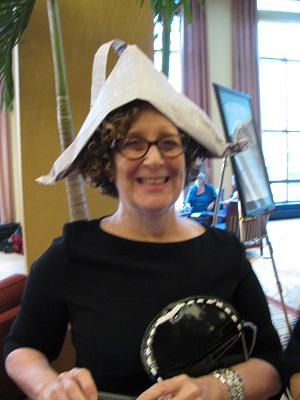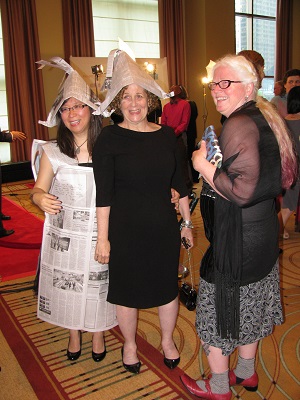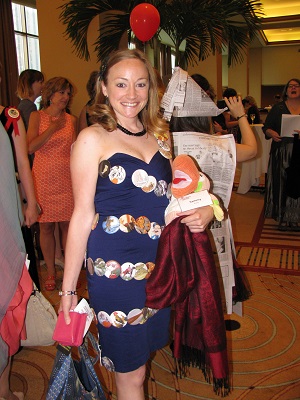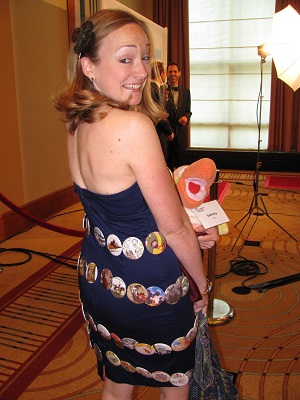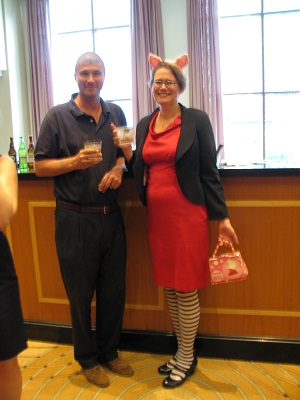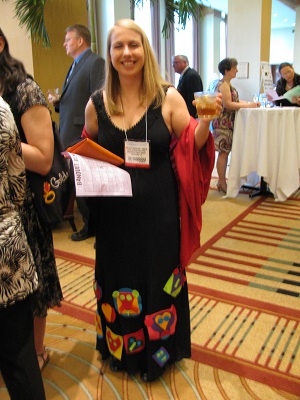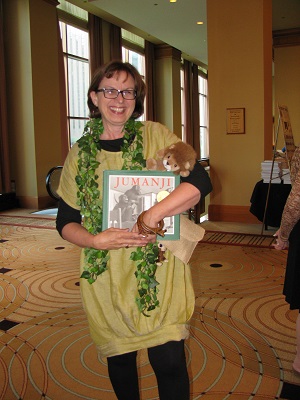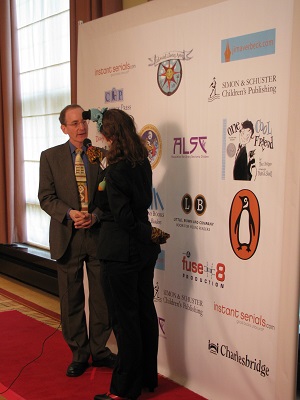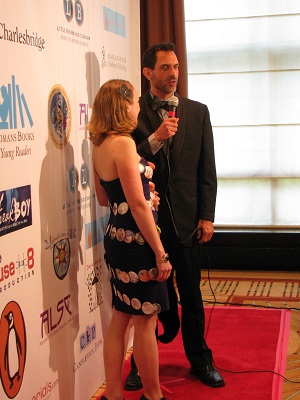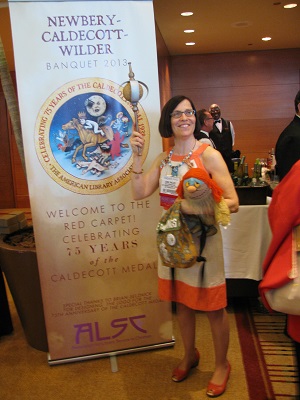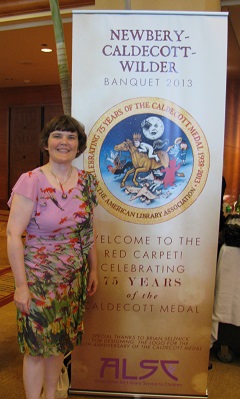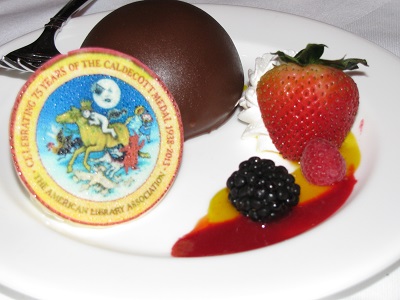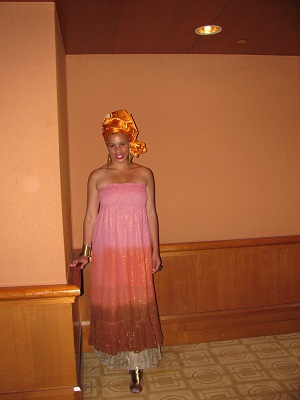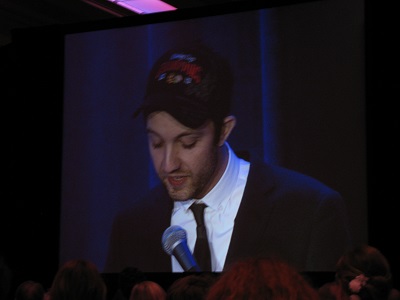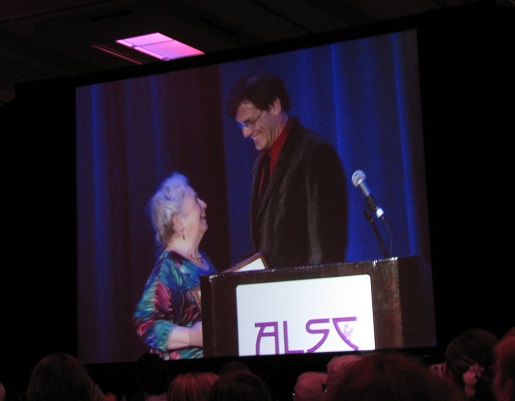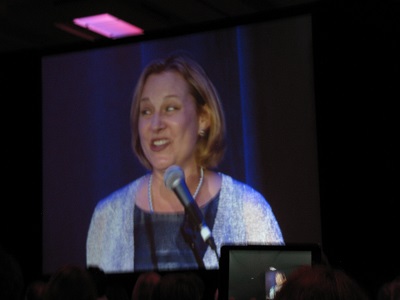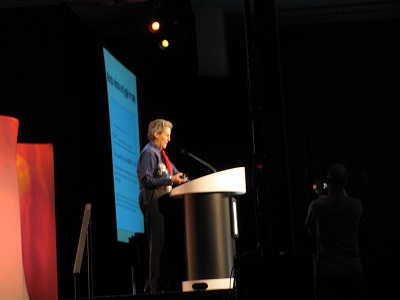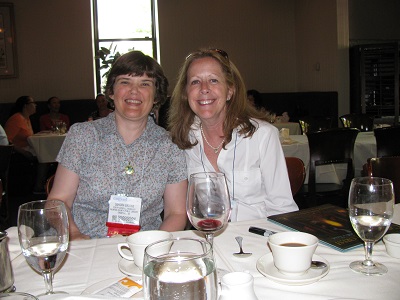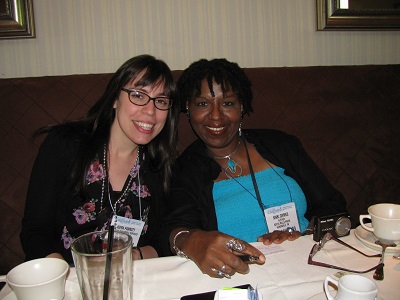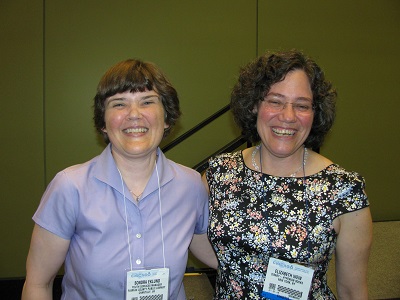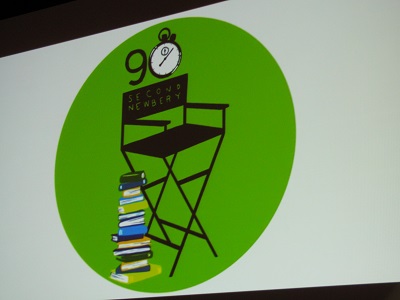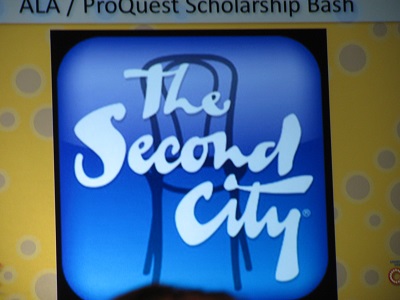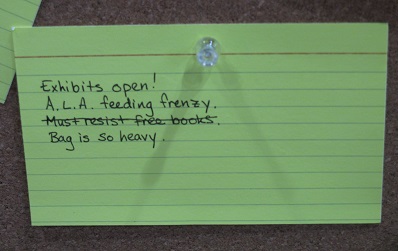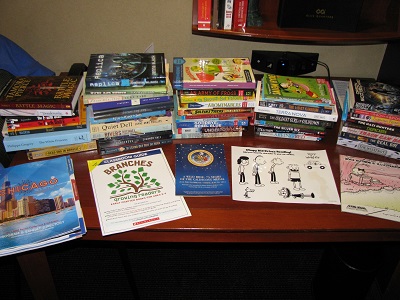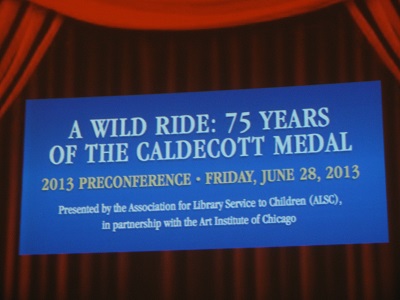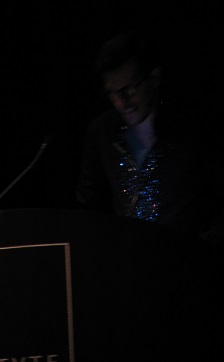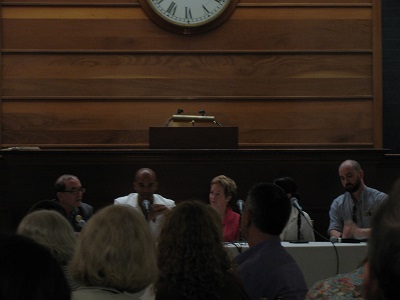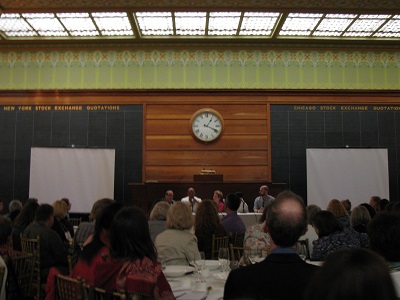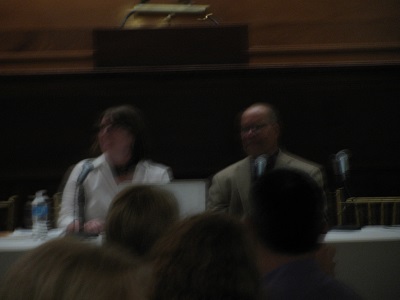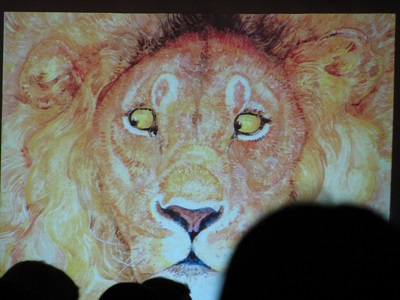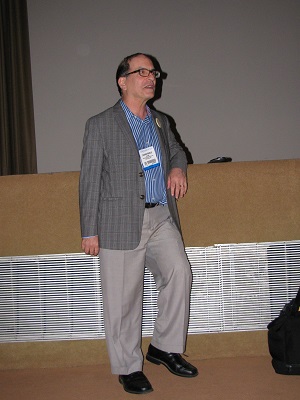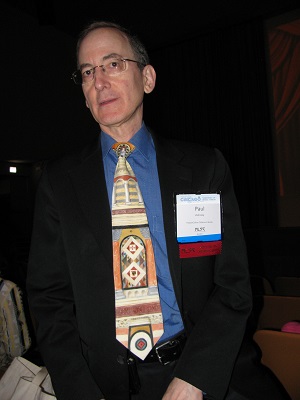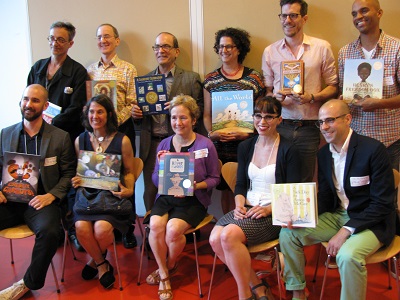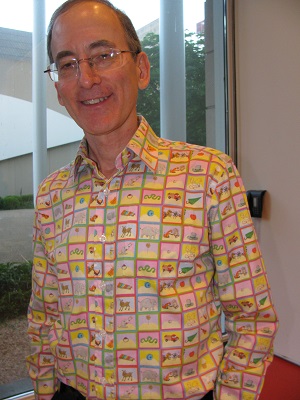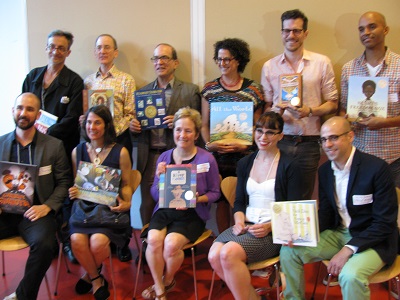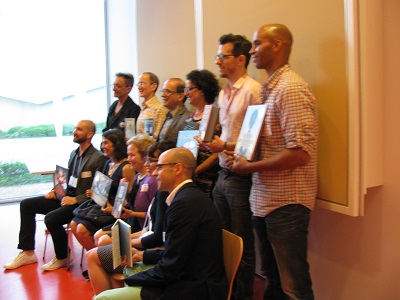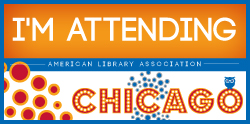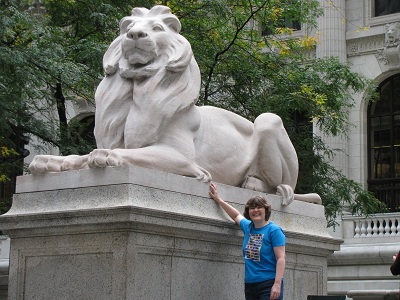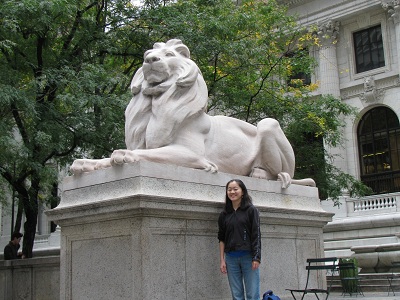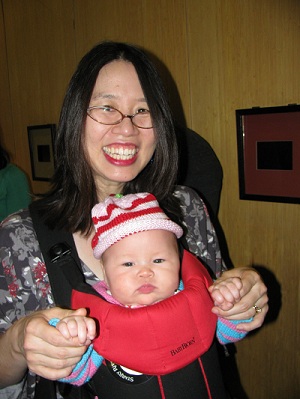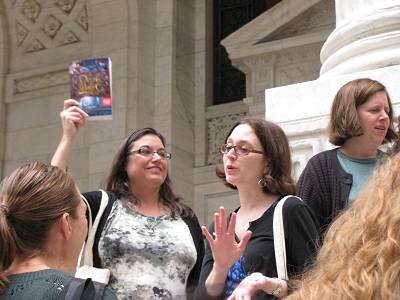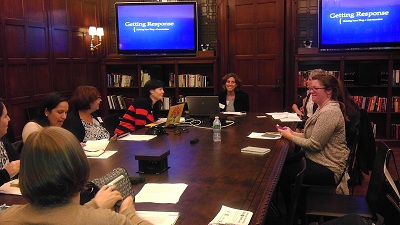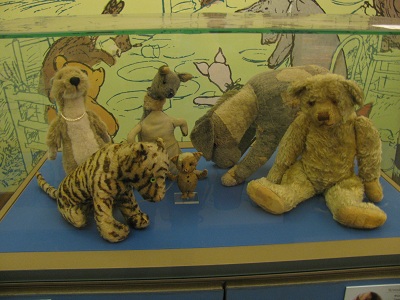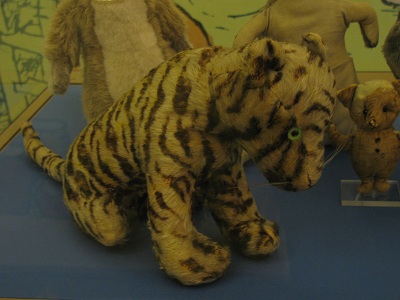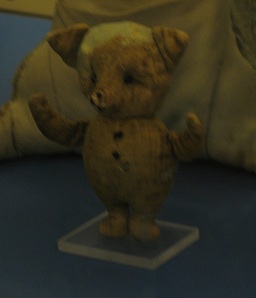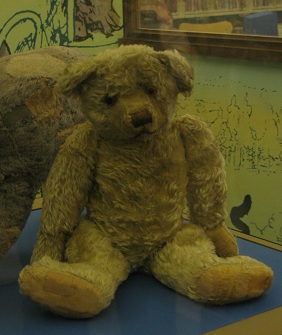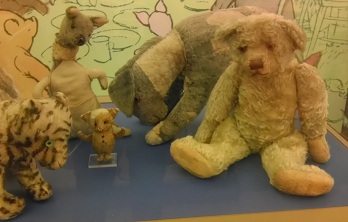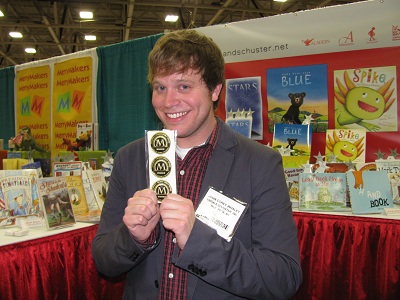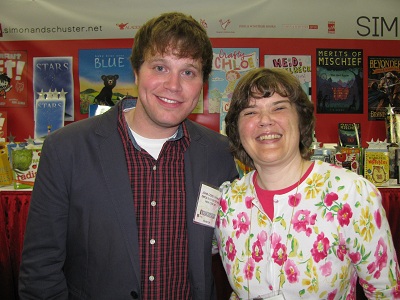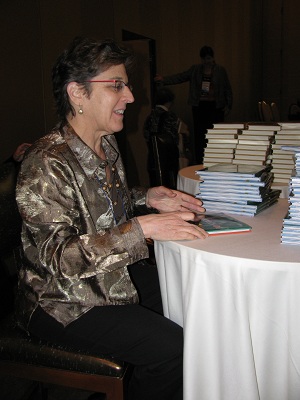ALA 2013 – Newbery/Caldecott/Wilder Banquet!
Sunday night – Time for the Newbery-Caldecott-Wilder Banquet!
This year, ALSC was celebrating the 75th anniversary of the Caldecott Medal, so they had encouraged people to come in costume. I simply added a bell around my neck. If you could hear it, you still had the magic.
The backdrop for the above photo is from the illustration created by Randolph Caldecott on which the front of the medal is based.
I tried to take pictures of many people I saw in costume, but I didn’t write down all the names. If you know someone in a picture, let me know who it is in the comments!
First, Monica Edinger with a newspaper hat from Black and White. (And you can also let me know if I get the book references wrong!)
Then I got a picture of Monica with Roxanne Feldman, who was in a full newspaper costume.
I know I’ve met this nice person and gotten her name. She had badges with covers from ALL the Caldecott Medal winners! (And do you recognize the red balloon from A Sick Day for Amos McGee?)
They go all the way around!
Here’s Mary Ann Scheuer as an exquisite Olivia. I believe she’s with Kelly Celia (from Walden Pond Press)’s husband. I think his name is Eric. He’s a teacher, and was a nice addition to the children’s book crowd.
(Again, please correct me in all my photo identifications in the comments!)
Here’s Chelsea Couillard-Smith with cutouts from Lois Ehlert’s Color Zoo!
And here’s a fabulous Jumanji costume! (Anyone know this clever person’s name?)
Paul Zelinsky is again wearing his so-appropriate Rapunzel tie. He’s being interviewed by Betsy Bird, who explained her complete Caldecott medal-and-honors honoring costume on her own blog.
And my friend with the 75 badges got the red carpet treatment, being interviewed by Jim Averbeck:
Then I simply had to get a picture of the Queen of the Wild Things. Her badge says she’s Carol Phillips:
And once I saw that fine backdrop, I had to have my own new Facebook profile picture taken:
Then it was time for the meal. I got to sit with Cara Frank, whom I just met — but knew from Twitter. Here’s the important part of the meal:
In the break after the meal and before the speeches, I had to get a picture of the person sitting next to me, Leslie, an editor from Vizmedia. She was wearing a lovely tribute to Why Mosquitoes Buzz in People’s Ears. (I like the way the colors went with the room, too!)
Finally, the speeches! Here’s Jon Klassen giving his acceptance speech for the Caldecott Medal for This Is Not My Hat.
I loved this quote from Jon Klassen:
“Storytelling in any form is a hopeful thing to do.”
I found most of the pictures I took of Honor winners were blurry or a little bit boring. But isn’t this picture cute of Laura Amy Schlitz accepting her Honor award from the Newbery Chair? I love the twinkle in her eyes!
Then came Katherine Applegate with her Newbery Acceptance Speech.
I’m pretty sure I caught her reading from one of her early efforts — a steamy Harlequin Temptation Romance. I loved her sense of humor about her career and these quotes:
“Writing is excruciating and writing is exhilarating.”
And especially:
“It’s never too late to be what you might have been.”
Finally, Katherine Paterson accepted the Laura Ingalls Wilder Award for lifetime achievement. She moves a lot when she talks, and I was not able to get an unblurry picture of her.
She talked about how this award has come to her “by virtue of your most honorable shadows.”
At the end of all the inspiring speeches, we get to join the receiving line and congratulate the winners in person. I saw more people I knew in that line. I was kicking myself for not getting a picture of John Schumacher, Travis Jonker, Eric Carpenter, and Colby Sharp all together in line. Yay for the Kidlit men! 🙂
It was a marvelous evening, and the committee who put together the 75th anniversary activities can congratulate themselves for a job well-done!
This is my sixth ALA2013 post. Still to come are Monday’s programs and then the Printz Awards Reception. So much good stuff spinning in my mind!
